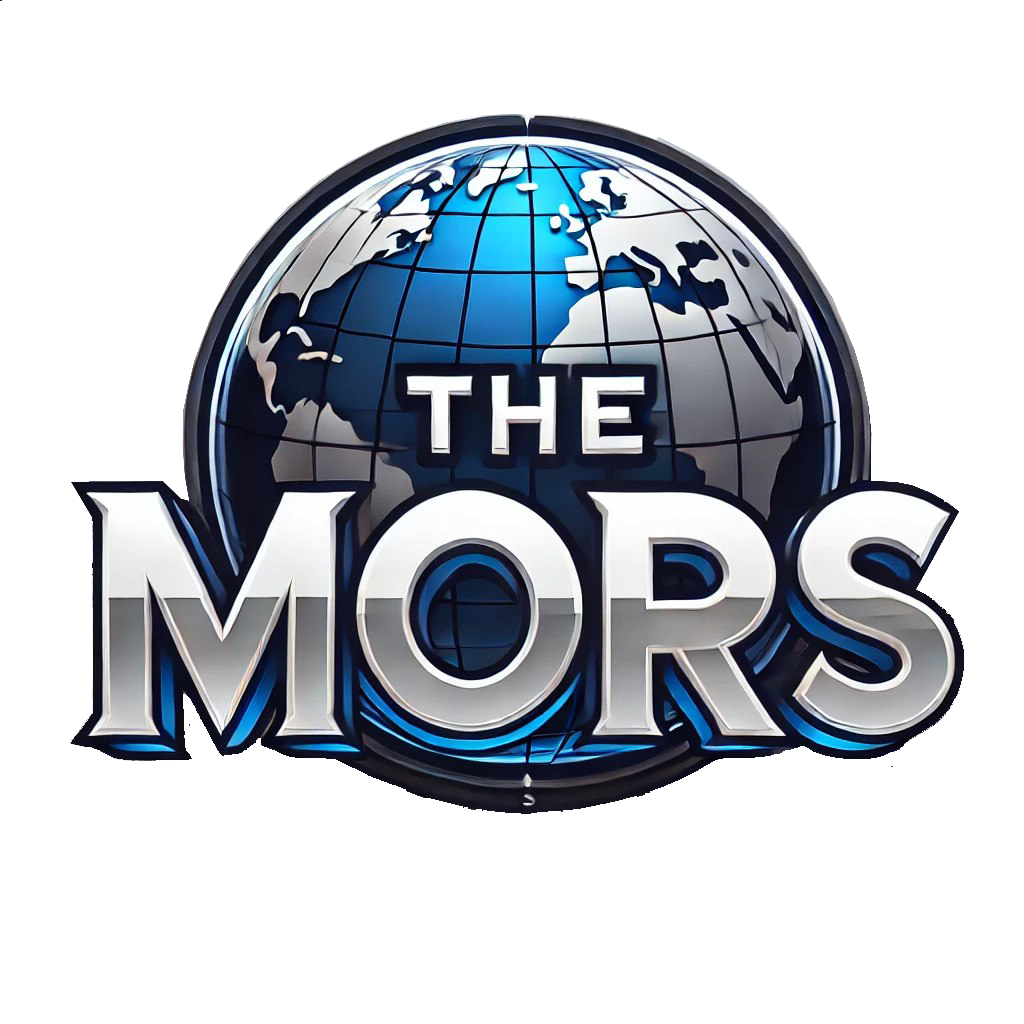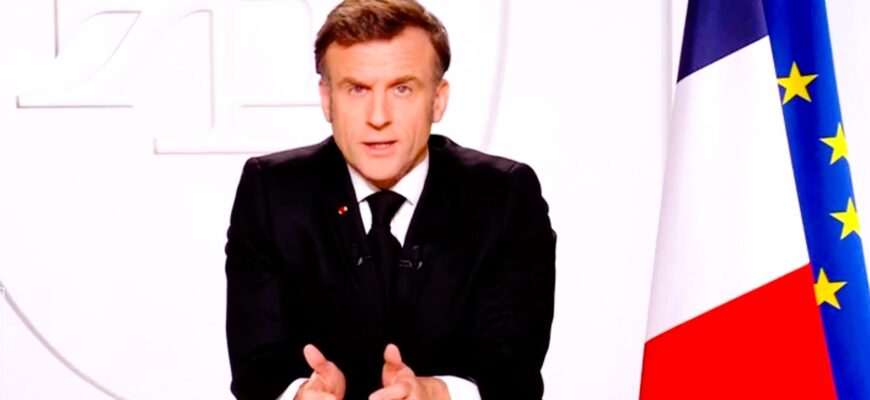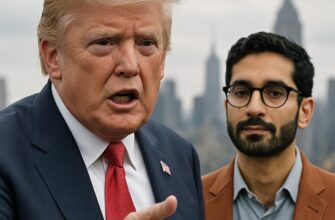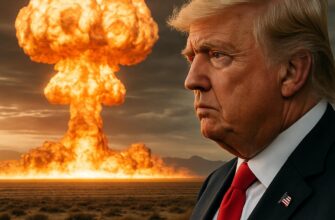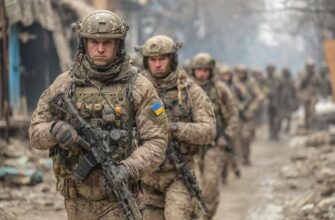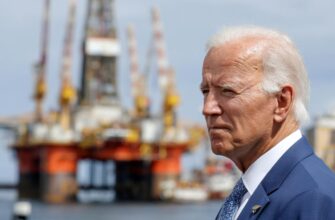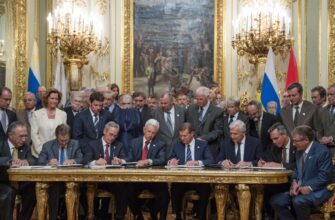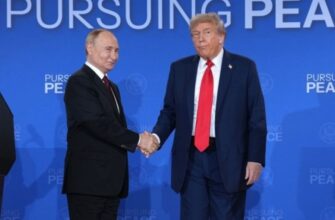On March 5, 2025, French President Emmanuel Macron delivered a televised address that sent ripples across Europe. Speaking to the nation, he proposed a dramatic rethink of France’s nuclear arsenal—not just as a shield for France, but as a potential safeguard for all of Europe. Journalists at TheMors have unpacked this pivotal moment, analyzing what Macron’s nuclear protection speech means for the continent, especially amid growing tensions with Russia and uncertainty over U.S. support. As of March 6, 2025, here’s a detailed look at his words, their context, and the road ahead.
The Context: A Changing Europe
Macron’s speech came at a critical juncture. Donald Trump’s return to the White House in January 2025 has shifted U.S. policy, with a pause in aid to Ukraine and threats of tariffs on European goods. Meanwhile, Russia’s war in Ukraine, now in its third year, shows no sign of slowing, and Moscow’s nuclear rhetoric keeps Europe on edge. Against this backdrop, Germany’s incoming chancellor, Friedrich Merz, recently called for talks on expanding nuclear protection from France and the UK—Europe’s only nuclear powers—prompting Macron to seize the moment.
In his address, Macron framed Russia as a direct “threat to France and Europe,” citing cyberattacks, election meddling, and its aggressive stance in Ukraine. He warned that relying solely on the U.S. might no longer suffice, echoing a long-standing French push for European autonomy. This wasn’t just a reaction—it was a strategic pivot, building on ideas he’s floated since 2020.
Macron’s Nuclear Vision Unveiled
The heart of Macron’s nuclear protection speech was a bold proposal: France could extend its nuclear deterrent to shield its European allies. “Our nuclear deterrence protects us—it’s complete, sovereign, and French through and through,” he said. “But I’ve decided to open the strategic debate on protecting our allies across the European continent with this deterrent.” He stressed that any decision to use nuclear weapons would remain solely with the French president, preserving national control.
France’s arsenal, estimated at 290 warheads by the Federation of American Scientists, includes air-launched missiles on Rafale jets and submarine-based systems. Unlike the UK, which ties its 225 warheads to NATO, France keeps its nuclear strategy independent—a legacy of Charles de Gaulle’s Cold War vision. Macron’s offer signals a potential shift, inviting Europe to rethink its security under a French-led umbrella.
Why Now? Russia and U.S. Uncertainty
The Russia Factor
Macron didn’t mince words about Russia. “We cannot trust Putin to keep his word,” he said, pointing to the 2014 invasion of Crimea and the failure of the Minsk Accords. With Russia rearming and testing Europe’s limits—through cyberattacks on hospitals and propaganda in Romania and Moldova—he argued that a stronger European defense is urgent. His speech tied this to Ukraine, where France and the UK are crafting a peace plan to counter Trump’s direct talks with Moscow.
U.S. Pullback
Trump’s “America First” stance has rattled NATO allies. His March 3 pause on Ukraine aid and tariff threats—25% on Canada and Mexico, with Europe next—signal a U.S. stepping back from its traditional role. Macron seized on this, saying Europe must prepare “if the United States isn’t always by our side.” Merz’s call for nuclear talks reflects Germany’s own pivot away from relying on American warheads stationed on its soil.
What Macron Proposed
Macron’s nuclear protection speech wasn’t just rhetoric—he outlined actionable steps:
- Strategic Dialogue: He invited European leaders to discuss how France’s nuclear capabilities could bolster continental security, starting at a Brussels summit on March 6.
- Military Chiefs Meeting: Next week, Paris will host army leaders from willing nations to plan peacekeeping in Ukraine post-deal, hinting at a broader defense role.
- No Sharing, Just Cooperation: Macron made clear France won’t hand over its arsenal—control stays with him—but allies could join deterrence exercises or planning.
This builds on his 2020 École Militaire speech, where he first linked France’s “vital interests” to Europe. Now, he’s pushing harder, testing if allies like Germany and Poland will bite.
Reactions Across Europe
Responses to Macron’s speech were swift and varied.
Support from Allies
Poland’s Prime Minister Donald Tusk tweeted, “Europe needs strength—France’s move is a start.” The UK and France, already aligned on Ukraine, see this as a chance to lead. At a March 2 summit in London, Macron, Zelensky, and UK Prime Minister Keir Starmer laid groundwork for a European peace plan, suggesting nuclear talks could follow.
Skepticism and Pushback
Germany’s response is cautious. Merz welcomes the idea, but Berlin’s historic aversion to nuclear weapons—rooted in post-WWII pacifism—complicates things. Far-right leader Marine Le Pen slammed Macron at home, arguing on March 5 that “sharing deterrence kills it,” insisting nuclear power must stay purely French. Defense Minister Sébastien Lecornu countered, “Our weapons are French and will stay that way.”
Russia wasn’t quiet either. On March 5, Kremlin spokesperson Dmitry Peskov called it “pushing Europe toward a world war abyss,” escalating tensions.
What Could This Mean?
Macron’s nuclear protection speech opens big questions for Europe’s future.
A New Defense Framework?
If talks gain traction, France could anchor a European deterrence strategy, reducing reliance on NATO’s U.S.-led umbrella. This might involve joint exercises or basing French assets in allied nations, though full “nuclear sharing” like NATO’s model seems off the table for now.
Risks and Challenges
France’s 290 warheads pale next to Russia’s 5,000-plus. Could they deter Putin? Critics like Politico’s May 2024 piece argue France alone can’t replace U.S. might. Plus, convincing skeptical nations like Germany—where nuclear aversion runs deep—will be tough. Costs also loom: modernizing France’s arsenal isn’t cheap, and Macron admitted “tough budget choices” lie ahead.
The Bigger Picture
Macron’s speech ties into his long-game vision of “strategic autonomy.” Since his 2017 Sorbonne address, he’s urged Europe to stand on its own. Russia’s aggression and Trump’s unpredictability have given him a “told-you-so” moment, as Politico noted in February 2025. Whether this galvanizes Europe or fractures it depends on the Brussels summit and beyond.
Conclusion: A Defining Moment
Macron’s nuclear protection speech on March 5, 2025, marks a turning point. It’s a call for Europe to grow up—militarily and politically—facing Russia without leaning on a wavering U.S. From Paris to Warsaw, leaders now face a choice: rally behind France’s nuclear shield or stick with a fraying status quo. The stakes couldn’t be higher.
TheMors journalists will keep you posted as this unfolds. For more on Macron’s nuclear protection speech and Europe’s shifting landscape, head to TheMors – Breaking News. Stay informed, dive into our updates, and share your take below!
